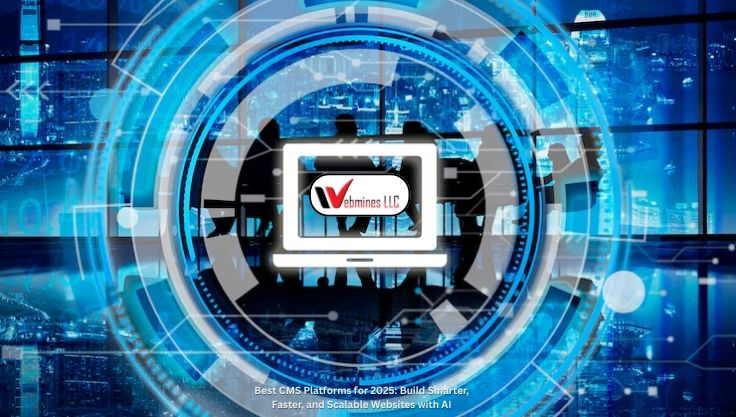AI vs Human Intelligence: Collaboration or Competition?
Explore the evolving relationship between AI and human intelligence. Is it a rivalry or a powerful collaboration shaping the future of innovation?

Introduction: The AI-Human Dynamic
In the age of rapid technological progress, the rise of Artificial Intelligence (AI) has sparked a crucial debate—is AI here to replace human intelligence, or does it exist to complement it? As businesses, educators, and innovators adapt to this digital revolution, understanding the synergy (or tension) between human cognition and machine learning is vital.
1. Defining Intelligence: Human vs Machine
-
Human Intelligence encompasses emotional reasoning, creativity, moral judgment, and the ability to adapt in ambiguous situations.
-
Artificial Intelligence, on the other hand, relies on algorithms and data to simulate problem-solving, pattern recognition, and task execution.
🧠 Key Distinction: Human intelligence is general-purpose, intuitive, and emotional, while AI is narrow, optimized for specific tasks at scale.
2. The Evolution of AI: From Automation to Autonomy
AI has transitioned from basic automation to advanced machine learning models like GPT, computer vision, and robotics.
Key Milestones:
-
1997: IBM’s Deep Blue defeats world chess champion Garry Kasparov.
-
2011: IBM Watson wins Jeopardy!.
-
2023–2025: AI powers tools like ChatGPT, MidJourney, Copilot, and more.
Today, AI:
-
Automates customer support
-
Personalizes marketing
-
Analyzes big data faster than ever
-
Assists in creative content generation
3. Where AI Excels Over Humans
AI isn’t just fast—it’s tireless, objective, and accurate.
✅ Advantages of AI Over Human Intelligence:
-
Speed: AI processes millions of data points in seconds.
-
Consistency: No fatigue or emotional bias.
-
Scalability: Works 24/7 without breaks.
-
Predictive Accuracy: Based on patterns from vast datasets.
Example: In healthcare, AI can diagnose diseases like diabetic retinopathy or breast cancer more accurately and earlier than some human doctors.
4. Where Humans Excel Over AI
Despite its capabilities, AI still lacks human nuance.
🧬 Human Superpowers:
-
Emotional Intelligence: Empathy, compassion, and interpersonal skills.
-
Moral Reasoning: Understanding ethics and consequences.
-
Creativity: Ability to imagine new ideas, beyond existing data.
-
Adaptability: Handling ambiguity, change, and paradoxes.
Example: A therapist, teacher, or leader can navigate emotional complexity in a way AI still cannot replicate.
5. AI and Humans: Better Together
Rather than viewing AI as competition, many experts believe in AI-augmented intelligence, where machines and humans complement each other.
🤝 Collaborative Examples:
-
Marketing: AI analyzes customer behavior, humans craft brand emotion.
-
Medicine: AI detects abnormalities, doctors decide treatments.
-
Education: AI customizes lessons, teachers mentor students.
-
Design: AI assists with layouts, humans add artistic vision.
💡 Insight: The future belongs not to those who compete with AI, but to those who collaborate with it.
6. Ethical Considerations: Who's in Control?
AI brings power—but also responsibility.
⚠️ Key Concerns:
-
Bias in Algorithms: AI learns from data, and biased data leads to unfair outcomes.
-
Job Displacement: Roles like data entry, customer support, and even journalism face AI pressure.
-
Privacy & Surveillance: AI systems collecting data can raise privacy concerns.
-
Decision-Making Transparency: AI’s “black box” logic can be difficult to audit or explain.
🚨 Human Oversight is Essential: Ethical AI requires human governance, transparency, and accountability.
7. Will AI Replace Humans? A Balanced Outlook
The short answer? AI will replace tasks, not people.
💼 Jobs Most Affected:
-
Repetitive roles (data entry, telemarketing, basic accounting)
-
Predictable processes (supply chain, logistics, quality checks)
🔄 Jobs Most Enhanced:
-
Creatives (designers, writers, marketers)
-
Strategists (business leaders, analysts)
-
Care-based roles (nurses, therapists, educators)
🧩 New Jobs Will Emerge: AI trainer, prompt engineer, ethical AI auditor, machine learning engineer, etc.
8. Preparing for the Future: How Humans Can Stay Ahead
Success in the AI era requires embracing lifelong learning and digital agility.
🔑 Tips to Future-Proof Your Career:
-
Master soft skills (empathy, leadership, communication)
-
Learn to work with AI tools (ChatGPT, MidJourney, Copilot)
-
Stay updated with trends in AI, blockchain, Web3, and cybersecurity
-
Focus on areas where creativity and emotional intelligence matter
Conclusion: Partnership, Not Rivalry
The debate of AI vs Human Intelligence shouldn’t be framed as an either-or. Instead, it’s about harmonizing strengths. AI can crunch data, detect patterns, and scale operations—humans bring judgment, heart, and imagination.
Together, they form the ultimate duo to tackle 21st-century challenges.
🚀 At AI Webmines LLC, we believe in building smart solutions that empower humans—not replace them.
FAQs
Q1: Can AI become more intelligent than humans?
AI can outperform humans in narrow tasks but lacks general intelligence, creativity, and self-awareness—for now.
Q2: Will AI take over all jobs?
No, but it will automate many repetitive roles. Humans will still lead in roles requiring judgment, empathy, and strategy.
Q3: How can businesses benefit from combining AI and human talent?
By automating repetitive tasks and letting humans focus on strategic thinking, creativity, and relationship-building.
Q4: Is AI dangerous without regulation?
Yes. Without ethical guidelines, AI can perpetuate bias, invade privacy, and be used irresponsibly. Human oversight is critical.
What's Your Reaction?
 Like
0
Like
0
 Dislike
0
Dislike
0
 Love
0
Love
0
 Funny
0
Funny
0
 Angry
0
Angry
0
 Sad
0
Sad
0
 Wow
0
Wow
0







































































